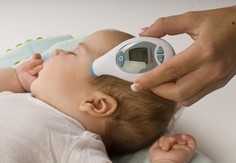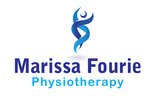 Winter has officially arrived! Unfortunately, so has a whole bunch of germs bugging our airways. Children are much more susceptible – as a new parent, I found that out the hard way. A bronchiolitis turned pneumonia recently sent my 3-month old straight into ICU in no time – an experienced that I would prefer never to have again...! As parents, we want to be vigilant for any threatening signs of disease, but are also (much too often) afraid of being paranoid. How should I know if my child’s cough and runny nose is simple a minor ailment, or if I should seek medical attention? Below are some symptoms to watch out for. The more of these occurring in combination with your child’s apparent flu, the more serious it may be. Fever: any fever recurring after fever medication has worked out is a sign that the body is fighting off something significant. Especially in infants younger than 3 months, rather visit the paediatrician sooner than later. Don’t wait too long with older babies either – even a mild-degree fever can lead to convulsions if not resolved timeously. Lethargy: When your quaint little busy-body toddler is suddenly just a passive heap of misery and grumps, something is wrong. Ill infants may be sleepier in general, and more irritable when awake. Appetite issues: A usually munchy munchkin who refuses to eat or drink, may indicate illness. Apart from the risk of dehydration, your little one will not gain sufficient energy for his body to resist the disease. In toddlers, differentiate between true symptoms and possible manipulative behaviour. Faster breathing rate: Babies breath faster and often more superficial when having airway trouble. To make sure, count the amount of breaths that your healthy child takes in a minute while she is sleeping. This will give you a standard to compare it to when she is ill. Just remember, babies’ normal amount of breaths per minute will decrease with age. Paleness: An unusual pale colour should get you on alert. No need to run to the doctor if there are no other symptoms though – just monitor her closely. If uncertain whether you are imagining paleness, take a photograph and compare it to one taken quite recently. Poor sleeping: A child who struggles to breathe, may not be sleeping well. If the sleeping pattern is more disturbed than usual, be on alert. Nasal flaring: This usually occurs in the more advanced stages of airway disease. Seek medical attention if you haven’t yet done so. Rib recession: Rib recession refers to a sharp inward pull of the muscles on the sides of the thorax/abdomen, just below the ribcage when breathing – you would almost see a “dent” when she inhales. This is also a sign of respiratory distress, and should be monitored by a medical practitioner. Blueness around the mouth: If you see a blueish colouration around your child’s lips, this may indicate an oxygen deficit. Also check her tongue, fingernails and toenails for a blueish colour. Seek medical attention. Painful coughing: This may be indicative of a number of conditions affecting the upper- or lower airway conditions. If your child cries with pain when coughing, have it checked out. Remember, early intervention is key – the sooner a disease is picked up and treated, the better. Rather be grateful for an “unnecessary” trip to the doctor, than regretting not going in time. And above all, trust your motherly instincts – they are more than often spot-on.
1 Comment
24/12/2023 14:05:43
What are some key symptoms that parents should watch out for in children during the winter season to determine if a cough and runny nose are signs of a minor ailment or if medical attention is necessary? Specifically, what are the indicators such as fever, lethargy, appetite issues, faster breathing rate, paleness, poor sleeping, nasal flaring, rib recession, blueness around the mouth, and painful coughing that may suggest a more serious condition requiring prompt medical intervention? regard <a href="https://sas.telkomuniversity.ac.id/en/">Telkom University</a>
Reply
Leave a Reply. |
AuthorMarissa Fourie is a physiotherapist in Stellenbosch with a special interest in musculoskeletal conditions, pediatrics, and post/prenatal health. Archives
March 2016
Categories
All
|
||||||

 RSS Feed
RSS Feed